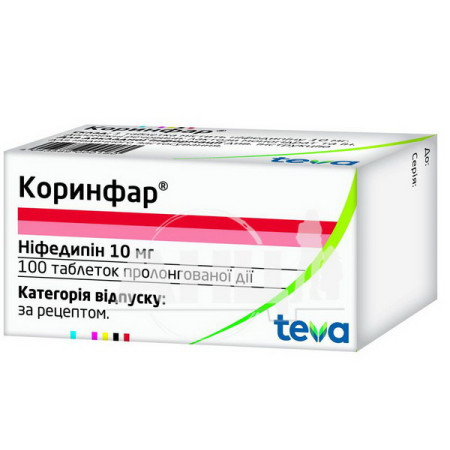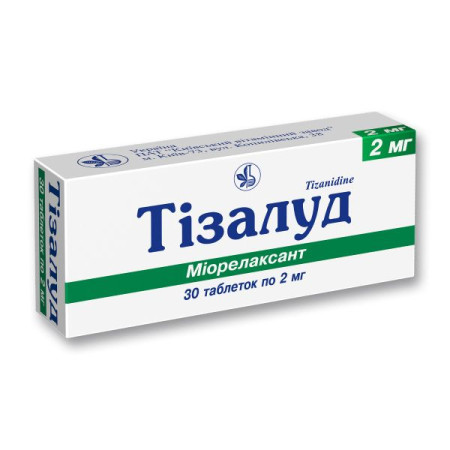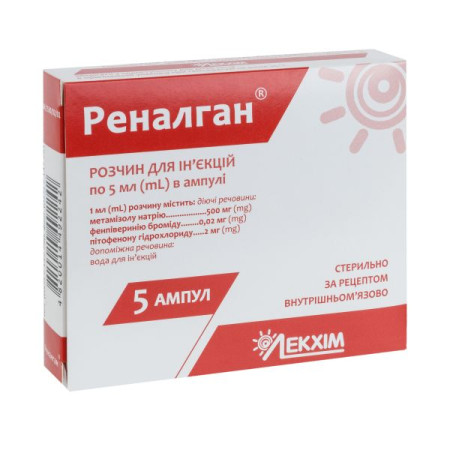Ascoril Expectorant syrup plastic bottle 100 ml

Instructions for use Ascoril Expectorant syrup, plastic bottle 100 ml
Composition
active ingredients: salbutamol sulfate, bromhexine hydrochloride, guaifenesin, menthol;
10 ml of syrup contains salbutamol sulfate equivalent to 2 mg of salbutamol, bromhexine hydrochloride 4 mg, guaifenesin 100 mg, menthol 1 mg;
excipients: sucrose, sodium benzoate (E 211), citric acid monohydrate, sorbitol solution 70% (E 420), glycerin, propylene glycol, sorbic acid, pineapple and blackcurrant flavors ID 20158, sunset yellow FCF dye (E 110), purified water.
Dosage form
Syrup.
Main physicochemical properties: transparent viscous liquid of orange color.
Pharmacotherapeutic group
Remedies used for coughs and colds. Expectorants. Combinations.
ATX code R05C A10.
Pharmacological properties
Pharmacodynamics
Ascoril Expectorant is a combination drug with bronchodilator, mucolytic and expectorant properties. Thanks to the rational combination of salbutamol, bromhexine hydrochloride, guaifenesin and menthol, it effectively and quickly relieves disorders of the bronchopulmonary system.
Salbutamol - a selective stimulator of b2-adrenoreceptors - effectively and for a long time dilates the bronchi. In therapeutic doses, it does not cause stimulation of cardiac activity. Bromhexine hydrochloride reduces the viscosity of sputum and promotes its evacuation from the bronchi. Guaifenesin relaxes and clears the bronchi of mucus, promotes expectoration. Menthol relieves symptoms of irritation and inflammation in the mucous membrane of the respiratory tract.
Pharmacokinetics
No specific pharmacokinetic studies have been conducted.
Indication
Secretolytic therapy for respiratory diseases accompanied by bronchospasm and the formation of viscous secretions that are difficult to separate: tracheobronchitis, chronic obstructive pulmonary diseases, bronchial asthma, and pulmonary emphysema.
Contraindication
Hypersensitivity to salbutamol, other sympathomimetics, bromhexine, guaifenesin, menthol or any other component of the drug. Arrhythmia, severe cardiovascular diseases, hyperthyroidism, severe liver dysfunction, gastric and duodenal ulcers.
Interaction with other medicinal products and other types of interactions
Hypokalemia, which develops as a result of the use of drugs containing salbutamol, may increase with the simultaneous use of diuretics. As a result, the risk of developing arrhythmias increases when used against the background of such treatment with cardiac glycosides. The effects of salbutamol may be reduced with the simultaneous use of β-blockers, especially non-selective ones (such as propranolol), and may also be enhanced with the simultaneous use of xanthines (such as theophylline).
Salbutamol should not be used simultaneously with inhalation anesthetics, adrenaline, tricyclic antidepressants and corticosteroids.
Bromhexine should not be administered simultaneously with drugs containing codeine. With the simultaneous use of bromhexine and drugs that irritate the digestive tract, mutual enhancement of the irritating effect on the gastric mucosa is possible. Simultaneous administration with antibiotics (amoxicillin, erythromycin, cefuroxime, doxycycline), sulfonamide drugs contributes to an increase in their concentration in the bronchial secretion. When taken simultaneously with drugs that suppress the cough center, difficulty in the discharge of thinned sputum (accumulation of bronchial secretion in the respiratory tract) is possible. Simultaneous administration with bronchodilators is possible.
Guaifenesin enhances the effects of central nervous system depressants and ethanol. It may also cause false-positive results in diagnostic tests for 5-hydroxyindoleacetic acid and vanillylmandelic acid in urine.
There is no data on the negative interaction of menthol with other drugs.
Application features
Shake well before use.
The drug should be used with caution in patients with essential or symptomatic hypertension, ischemic heart disease and other cardiovascular diseases, as well as in patients with subcompensated diabetes mellitus and glaucoma.
Very rarely, severe skin reactions, such as Stevens-Johnson syndrome and Lyell's syndrome, have been observed with the use of bromhexine. If changes appear on the skin and mucous membranes, you should immediately consult a doctor and stop using the drug.
In case of impaired bronchial motility, accompanied by the formation of a large amount of bronchial secretion (malignant cilia syndrome), the drug should be used with extreme caution due to possible stagnation of secretions.
Periodic monitoring of liver function is recommended, especially with prolonged use. Propylene glycol, which is part of the drug, may cause symptoms in children that resemble those caused by alcohol consumption.
The drug contains sucrose, therefore patients with rare hereditary forms of fructose intolerance, sucrase-isomaltase insufficiency or glucose-galactose malabsorption syndrome should not use the drug.
Before starting treatment and during treatment of such patients, it is necessary to monitor blood glucose levels.
Isolated cases of myocardial ischemia have been reported in association with the use of salbutamol. Patients with cardiac disease (e.g. coronary artery disease) treated with salbutamol sulfate should seek medical attention if they experience chest pain or other symptoms suggestive of worsening cardiac disease. Attention should be paid to evaluating symptoms such as shortness of breath and chest pain, which may be due to both cardiac and respiratory disease.
Treatment with β2-agonists may result in severe hypokalemia, therefore it is recommended to check serum potassium levels.
Like other β-adrenergic agonists, salbutamol sulfate may cause reversible metabolic changes, such as increased blood sugar levels. In this regard, there have been isolated reports of ketoacidosis in patients with diabetes mellitus. Concomitant use of corticosteroids may exacerbate this condition.
Do not administer to patients before anesthesia.
The drug should not be used in patients with hypertrophic cardiomyopathy.
If there is a history of gastric bleeding, the syrup should be used under the supervision of a physician. During treatment with the drug, it is necessary to drink a sufficient amount of fluid, which increases the expectorant effect of bromhexine.
The dye sunset yellow FCF (E 110) present in the medicinal product may cause an allergic reaction.
Use during pregnancy or breastfeeding
Do not apply.
Ability to influence reaction speed when driving vehicles or other mechanisms
During treatment with the drug, it is better to refrain from driving vehicles and performing work that requires precision of movements, speed of reaction, and concentration of attention.
Method of administration and doses
The drug is used as prescribed and under the supervision of a doctor.
Adults and children over 12 years old should take 10 ml 3 times a day. Children from 6 to 12 years old - 5 - 10 ml 3 times a day. Children from 2 to 6 years old - 5 ml 3 times a day. The duration of treatment is determined by the doctor individually.
Children
Do not prescribe the drug to children under 2 years of age due to the lack of experience in using it in this age group of patients.
Overdose
Symptoms: tachycardia, tremor, convulsions, gastrointestinal discomfort, nausea, vomiting, extrasystole, hypotension, chest pain, hypokalemia, ataxia, diplopia, drowsiness, metabolic acidosis, rapid breathing, headache, palpitations, arrhythmia, hyperglycemia, abdominal pain, exacerbation of gastric ulcer, agitation, confusion and respiratory depression.
Treatment: Symptomatic therapy.
Adverse reactions
On the part of the immune system: hypersensitivity reactions, including rash, itching, anaphylactic reactions, including drug hypersensitivity syndrome with eosinophilia and systemic symptoms, anaphylactic shock, angioedema, urticaria, oropharyngeal edema, Lyell's syndrome; rarely, erythema multiforme, Stevens-Johnson syndrome, acute generalized exanthematous pustulosis, facial edema may occur with oral administration of salbutamol in children.
On the part of the digestive tract: dyspeptic phenomena, nausea, vomiting, diarrhea, abdominal pain, exacerbation of gastric ulcer/intestinal ulcer, gastralgia, unpleasant taste in the mouth.
Nervous system: tremor, myalgia, headache, hyperactivity, dysgeusia, dizziness, anxiety, insomnia.
Cardiovascular system: tachycardia; peripheral vasodilation; cardiac arrhythmias, including ventricular fibrillation, supraventricular tachycardia and extrasystole; hypotension or hypertension; palpitations; myocardial ischemia; collapse.
From the respiratory system: respiratory disorders, increased cough.
Salbutamol may cause paradoxical bronchospasm, which is a life-threatening condition. If this occurs, the drug should be discontinued immediately and alternative treatment should be instituted.
Others: muscle cramps, feeling of pressure in the muscles, hyperthermia, chills, mydriasis, bladder atony, increased sweating, thrombocytopenia, metabolic changes such as hypokalemia.
Some patients may develop a transient increase in blood aminotransferase levels caused by bromhexine.
Expiration date
2 years.
Storage conditions
Store in a place protected from light at a temperature not exceeding 25 °C.
Keep out of reach of children.
Packaging
100 ml or 200 ml in bottles; 1 bottle with a measuring cap in a cardboard box.
Vacation category
According to the recipe.
Producer
Glenmark Pharmaceuticals Ltd. / Glenmark Pharmaceuticals Ltd.
Location of the manufacturer and its business address
Plot No. E-37/39, MIDC, Industrial Estate, Satpur, Nasik – 422 007, India.
Village Kishanpura, Baddi-Nalagarh Road, Tehsil Baddi, Distt. Solan (HP) 173 205, India.
There are no reviews for this product.
There are no reviews for this product, be the first to leave your review.
No questions about this product, be the first and ask your question.


















